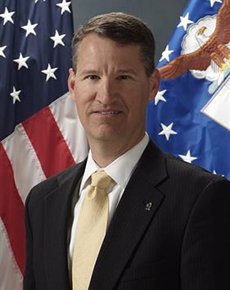Insight By The IBM Center For The Business Of Government
IT strategy at the Air Force: A conversation with Bill Marion
What is the U.S. Air Force’s Information Dominance Strategy? How is the Air Force changing the way it does IT? What is the U.S. Air Force doing to leverage...
This content is provided by the IBM Center for the Business of Government.
Mondays at 11:00 a.m. & Fridays at 1:00 p.m.
The Business of Government Radio Hour, hosted by Michael J. Keegan, features a conversation with a federal executive who is changing the way government does business. The executives discuss their careers and the management challenges facing their organizations. Guests include administrators, chief financial officers, chief information officers, chief operating officers, commissioners, controllers, directors, and undersecretaries.
SPECIAL REBROADCAST:
What is the U.S. Air Force’s Information Dominance Strategy? How is the Air Force changing the way it does IT? What is the U.S. Air Force doing to leverage advances of mobile technologies? Join host Michael Keegan as he explores these questions and more with Bill Marion, Deputy Chief, Information Dominance & Deputy Chief Information Officer, U.S. Air Force.
LISTEN TO THE FULL SHOW:
GUEST BIOGRAPHY:
 William E. Marion II is Deputy Chief, Information Dominance and Deputy Chief Information Officer, Washington, D.C. Mr. Marion assists in leading three directorates and supports 54,000 cyber operations and support personnel across the globe with a portfolio valued at $17 billion. He provides oversight of the Air Force’s Information Technology portfolio including the Information Technology investment strategy, networks and network-centric policies, communications, information resources management, information assurance, and related matters for the Department of the Air Force. As Deputy Chief Information Officer, Mr. Marion provides oversight of portfolio management, delivers enterprise architecture, and enforces freedom of information act and privacy act laws. He integrates Air Force warfighting and mission support capabilities by networking air, space, and terrestrial assets. Additionally, he shapes doctrine, strategy, and policy for all cyberspace operations and support activities.
William E. Marion II is Deputy Chief, Information Dominance and Deputy Chief Information Officer, Washington, D.C. Mr. Marion assists in leading three directorates and supports 54,000 cyber operations and support personnel across the globe with a portfolio valued at $17 billion. He provides oversight of the Air Force’s Information Technology portfolio including the Information Technology investment strategy, networks and network-centric policies, communications, information resources management, information assurance, and related matters for the Department of the Air Force. As Deputy Chief Information Officer, Mr. Marion provides oversight of portfolio management, delivers enterprise architecture, and enforces freedom of information act and privacy act laws. He integrates Air Force warfighting and mission support capabilities by networking air, space, and terrestrial assets. Additionally, he shapes doctrine, strategy, and policy for all cyberspace operations and support activities.
Mr. Marion has held various headquarters, major-command, center, group, and squadron assignments, often interacting with national intelligence agencies. In these capacities, he has led technical and systems architectures, obtained funding for a multimillion-dollar network infrastructure programs, developed numerous IT and CIO policies, and led web, portal and server consolidation efforts. Earlier positions also include serving as a Palace Acquire, or PAQ, intern. As an intern, he received a breadth of experience by working in various network and systems administration, program management, civilian program and personnel management, and computer training jobs.
Copyright © 2025 Federal News Network. All rights reserved. This website is not intended for users located within the European Economic Area.





